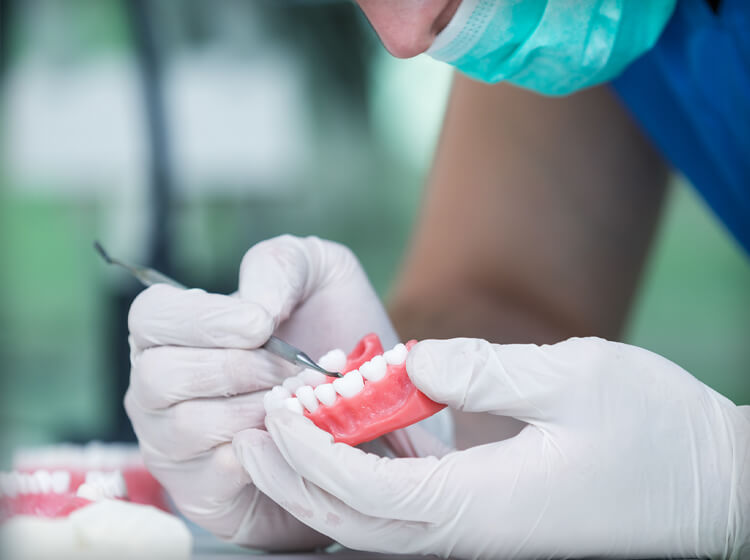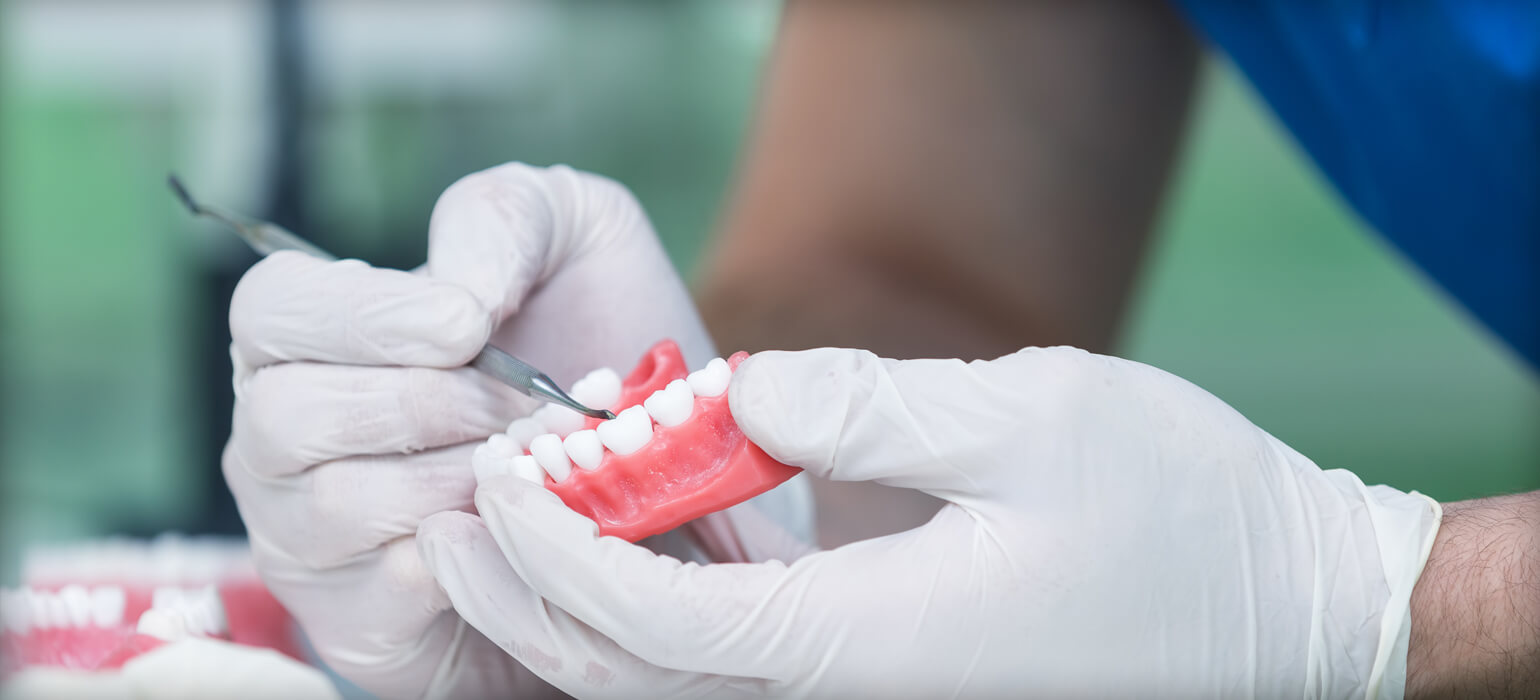Our Services
Dental Prosthetics


Filling Gaps in Your Smile to Rebuild Your Confidence
The causes for adult tooth loss can vary from advanced gum disease or tooth decay to accidental loss during a car wreck or due to a sports injury. Regardless of the cause, when you lose a natural tooth, you should begin to explore your options for replacement immediately. As soon as that tooth is missing, the remaining teeth begin to manage the loss by shifting. This shifting affects your bite, which can put a strain on your temporomandibular joints and lead to TMJ disorder. This ongoing strain can lead to chronic jaw pain and malfunction. When teeth are missing, we also tend to change the way we chew, and this can lead to wear on the remaining teeth. The result is often broken teeth and fillings.
All of your teeth (with the possible exception of wisdom teeth) are essential to the overall function of your mouth and jaw. If due to decay or damage, you have lost any teeth, we can restore oral function through the placement of prosthetic restorations, or replacement teeth. We have several options for replacement teeth, which depend on a number of factors, namely the number and placement of your missing teeth.
Choosing the Right Replacement for Your Tooth/Teeth
Depending on your individual case, we offer a number of life-like replacement teeth. Using state-of-the-art materials and techniques, we can provide you with a new smile that looks great, functions well, and restores your confidence in speaking and smiling. Many of our patients report and increased the enjoyment of life after receiving a dental prosthetic since they can now enjoy interacting socially and enjoying the simplest pleasure of life, eating meals, without worry or impediment.
Dental Bridges
Bridging Gaps in Your Smile Due to Tooth Loss
A fixed dental bridge is an excellent option if you are missing two or more adjacent teeth. Crowns are fitted to the abutment teeth, or the two teeth on each side of the gap, to anchor the bridge appliance. He will take an impression of the space, and submit specifications to a dental lab. While you wait for your permanent replacement, you will be fitted with a temporary bridge. Once your hand-crafted teeth arrive, the permanent bridge will be cemented into place. You will care for your new teeth as you would your natural teeth.
Choosing a Dental Bridge
We will take a number of considerations into account before developing a dental prosthetic treatment plan for you. In addition to your personal preferences, he will need to assess the strength of the teeth neighboring the gap to see if they can provide adequate support for the abutment crowns. In addition, he will need to assess your oral health condition. If you have significant tooth decay or damage or if you don’t have a good record for caring properly for your teeth, the state of your oral health may need to be addressed before proceeding with the procedure.
Building a Dental Bridge
Dental bridges have been used to replace missing teeth since the days of the ancient Etruscans, nearly 2000 years ago. These ancient dental restorations were constructed of gold and served as a means for people to display their wealth. Today, dental bridges are constructed of a lightweight, biocompatible metal framework and natural-looking crowns. The buzzword in modern dental prosthetics and dental restorations is realism, and we partner with a highly regarded dental lab known for producing highly realistic and durable dental bridges.
Dentures & Partials
Rebuilding a Smile After Severe Tooth Loss
Ask any person on the street what they think about dentures and you’ll probably hear everything from big teeth floating in a glass of water to those little wind-up fake teeth you can buy at a novelty shop. Of course, the reality of modern dentures is a far cry from the big, bulky dentures of years past. Advances in materials and fabrication techniques have resulted in modern dentures that are lightweight and feature highly realistic color and precision fit. We can provide his patients with custom-designed full or partial dentures depending on their particular needs:
- Partial Dentures: If you are missing several, non-adjoining teeth, a partial denture might be the best option for you. Partial dentures consist of replacement teeth attached to a metal clasp, which clip to the remaining teeth. Partial dentures come in removable varieties that can be taken out for cleaning every evening, or fixed versions that can only be removed by your dentist.
- Full Dentures: If you are missing all the teeth along your top or bottom dental arch, full dentures are the solution for you. Dentures can be fabricated to fit and function like natural teeth, with the use of suction or denture adhesive. These removable prosthetics are durable and life-like.
Securing Dentures on Dental Implants
All of our patients enjoy the youthful appearance and better chewing and speaking ability achieved through dentures, but many would prefer a more secure and stable position. No matter how well a denture fits, there’s always the possibility it could slip out at an inopportune moment. Dental implants, the latest advance in replacement teeth, are surgically implanted into the jaw and provide an incomparably stable base for full or partial dentures. Talk to Dr. Hawks about whether dental implant-secured dentures could give you a new lease on life.